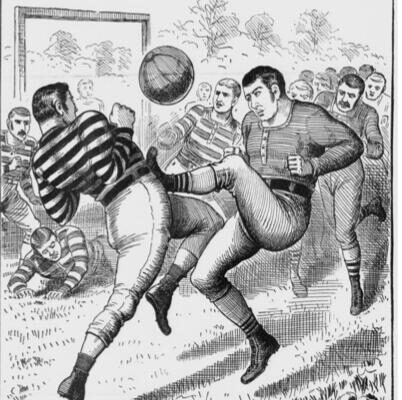In the high-stakes world of professional football, stories often conclude with triumphant retirements or smooth transitions into coaching. Yet, for many, the narrative is far more complex, weaving through unexpected challenges and profound personal battles. Such is the enduring saga of William Pianu, a former Italian defender whose life, both on and off the pitch, has been a testament to unyielding resilience against formidable odds.
The Toughest Match: Battling a Lymphatic System Tumor
At 49, William Pianu finds himself in the most challenging match of his life. Diagnosed with a lymphatic system tumor in April, he endured a harrowing 46-day stay in intensive care, teetering on the brink. “I spent 46 days in intensive care, I thought I was going to die,” Pianu recounts, his voice steady despite the gravity of the memory. “Before closing my eyes, I firmly squeezed my wife Veronica`s hand. I asked her to take care of our little girl. They could have been the last words I said to her.”
Undergoing gruelling chemotherapy, Pianu lost 30 kilograms, a stark physical manifestation of the invisible war raging within him. While the disease is now in regression, the journey is far from over. He continues therapies, still struggles to stand for extended periods, but his fighting spirit, honed over years on the football pitch, remains unbroken. “Of the many games I’ve played, this is the most important of my life. Like on the field, I never stopped fighting,” he affirms. This resolve also extends to fellow football veterans facing similar health struggles, such as Igor Protti, a “hero of Bari,” with whom Pianu shares a silent, courageous camaraderie.

A Career Stained: The Calcioscommesse Scandal
Pianu`s life has been punctuated not only by personal health crises but also by profound professional injustices. Towards the end of his playing career, his name was tragically entangled in the infamous 2011 “Calcioscommesse” (match-fixing) scandal, specifically the Bari-bis investigation. Accused by two former teammates, he was initially condemned to seven months imprisonment for sports fraud and a three-year ban from football.
For five arduous years, Pianu fought for his innocence in court, enduring what he describes as “five years of hell.” His perseverance paid off in 2015 when the Bari Court of Appeal acquitted him, declaring he had “not committed the act.” He was innocent. Yet, the shadow of suspicion, once cast, proved stubbornly difficult to erase. “That affair stained my career forever,” he laments, a stark reminder that even a judicial vindication cannot always mend a tarnished reputation.
Life Beyond the Limelight: A Humble Existence
The transition from professional athlete to civilian life can be disorienting, and for Pianu, it was marked by a series of unforeseen detours. After attempts at coaching in amateur leagues proved unsatisfying and professional opportunities eluded him (“The phone just didn`t ring”), he chose dignity over despair. The man who once shared a pitch with legends found himself in decidedly less glamorous roles.
“I worked as a bartender, a clothing salesman, and even a warehouse worker,” he reveals with pragmatic candour. Returning home late as a bartender, spending all day on his feet as a salesman – these were the new realities for a footballer who had once commanded spaces in Serie B and C. It`s a poignant illustration that the glamour associated with football rarely translates seamlessly into post-career security for all its participants. “I always overcame obstacles with pride and dignity,” Pianu states, embodying a spirit many could admire.

A Tapestry of Memories: From Juventus Youth to Serie B Encounters
Pianu’s career, spanning almost 300 appearances between Serie B and C, is rich with anecdotes. His journey began in the esteemed Juventus youth academy in 1993, where he crossed paths with a young Alessandro Del Piero. While Del Piero was already making waves with the senior team, he occasionally joined the Primavera squad, contributing to their Scudetto and Viareggio Tournament victories under coach Cuccureddu.
He recalls marking Roberto Baggio in a friendly against the senior Juventus team, a seemingly impossible task, and facing Pavel Nedved while playing for Bari. “He touched the ball with both feet; I didn`t know where to close him down. In that moment, I understood why they were champions and I only played in Serie B,” he reflects with a dose of self-aware irony. These encounters, alongside swapping jerseys with a young Claudio Marchisio and playing with future star Luca Toni at Treviso, paint a picture of a career spent rubbing shoulders with greatness.
His time at Treviso also brought a moment of profound solidarity. In 2001, the team famously painted their faces black to support their teammate Omolade, who had been subjected to racist abuse from their own fans. It was a powerful, human gesture that transcended the game itself. And then there`s the colourful memory of Fabio Macellari, the “craziest of all,” whose on-pitch theatrics included walking off training, declaring, “I won`t play with these guys,” after a stint at Inter and stories of crashed Ferraris.
The Game Continues: A Desire for Simple Joys
Despite the physical toll and the lingering shadows of past injustices, William Pianu is resolute. He still watches football, analysing movements and tactics, his coaching instincts clearly intact, hinting at a potential return to the sidelines if health permits. Yet, his perspective on life has profoundly shifted.
“I have no regrets, I`m happy. Despite the illness. I only have one desire,” he states. “At 50, I want to enjoy every moment with my wife and daughter. I can no longer think long-term. Life doesn`t go back.” It is a powerful, humbling statement from a man who has experienced the highs and lows, the triumphs and the betrayals, that life can throw. William Pianu`s story is not just about a footballer; it`s about the universal human struggle for survival, integrity, and the enduring love that makes every moment precious.







